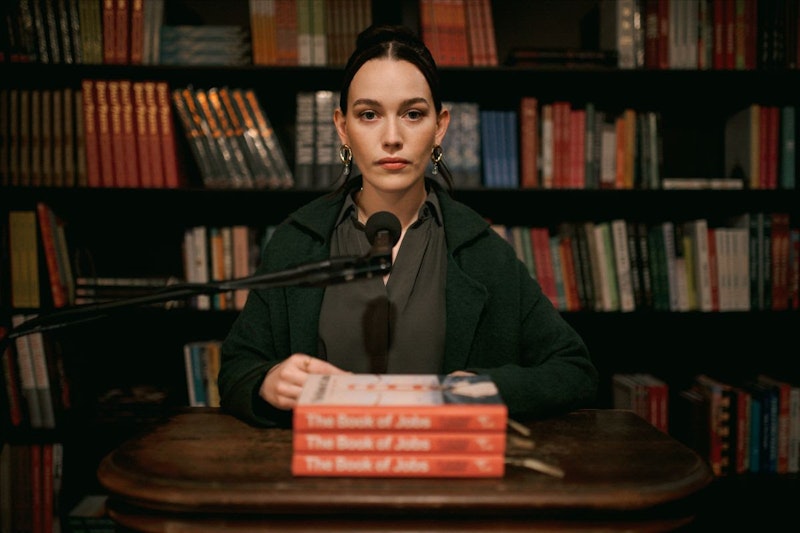Coming-of-age stories have universal appeal. We were all children once, and although we may differ culturally, there are certain aspects of childhood that remain the same. No matter what the specific experience of our life may be, every child’s muddling through, trying to figure where he or she belongs, and what kind of life ought to be lived.
A new film, Everything to Me, deals with these themes. It opened last week in New York, and the director, Kayci Lacob is taking a different approach to distributing her film. According to the report in IndieWire, Lacob decided to take an independent route, and self-distribute the film. She’s relying on audiences instead of big studios, or any studios at all.
Lacob may be successful because Everything to Me is a charming story of a young girl growing up in the early 2000s in Silicon Valley. It’s a film free of ideology and politics, and in a world that’s overwhelmingly political, Lacob’s story offers a respite from “rage farming.”
Everything to Me focuses on a teen girl, Claudia (Abigail Donaghy), living with her parents in the hub of technological development, Silicon Valley. Her father and mother (Judy Greer, in a very emotional role) are engineers. Her father is attempting to make it big, like any other computer scientist, and her mother has long ago given up on that dream in order to raise Claudia.
In the midst of her parents’ divorce, getting her period, and inability to form proper friendships, Claudia dreams of one thing only: Steve Jobs. She doesn’t see Jobs simply as a positive inspiration. He’s not merely an innovative man, but a deity. What’s more, Claudia doesn’t simply worship Jobs—she wants to be him. Claudia’s entire world is colored and shaped by her relation to Jobs. Her high school years are filled with hard work, rigid schedules, efficiency, and a determination to get into Stanford University to study (obviously) computer science.
Donaghy’s performance as more than just a precocious teenager aspiring to be successful is flawless. Claudia’s logical and linear, which in and of itself isn’t a bad trait. However, her logical mind is rigid, unemotional, and most of all, lacking in empathy. It’s almost impossible to sympathize with the character because she’s cruel, cutting, and seemingly oblivious to human experiences, as well as the impact her cruelty has on others.
When her mother’s diagnosed with cancer, she invokes Steve Jobs as an inspiration to beat it. When an opportunity presents itself for a romantic and emotional connection with a fellow classmate, Claudia eschews the possibility of love. Rather, she objectifies the boy and the experience—she wants to get rid of her virginity and check it off the list.
It’s inconceivable to Claudia that her not-so-romantic interest isn’t going to Stanford to study computers. There’s more to life than coding, he tells her, which is why he’s majoring in philosophy. (He won’t find happiness there either but at least, he knows what he doesn’t want to do.)
As Claudia’s story unfolds, she becomes more and more desperate in her cerebral relationship and obsession with Jobs. She worships the Apple products she dutifully buys, and it’s not enough to come up with another innovation. “I need to be him!,” she screams, giving the impression of a toddler, or Veruca Salt in Willy Wonka and the Chocolate Factory (1971). But things begin to break down when, at Stanford, she realizes that studying computer science is boring, and after all, she doesn’t really like to code.
In Claudia’s mind, Steve Jobs is invincible, practically immortal. Her epiphany, a moment when she actually “grows up,” arrives when an important news notification comes across her iPhone 4S: Steve Jobs is dead. The shock and devastation is monumental. Claudia’s iPhone slips out of her hands and lands on the pavement. The screen’s shattered and as she desperately tries to reload the news item, the screen isn’t responding and it goes dark.
Lacob presents all these moments with a child-like lightheartedness. There are a few overly sentimental scenes, but it is the story of a young girl that drives the film. It’s unimportant what her destination is, but rather that she finally realizes that she’s not Steve Jobs.
It’s curious that Lacob is described as “Gen-Z Greta Gerwig.” Shouldn’t Kayci Lacob simply be Kayci Lacob? It’s understandable that any new director or artist is bound to draw comparisons, but much like Claudia in Everything to Me, Lacob ought to be recognized for her own efforts and creativity as a filmmaker.

